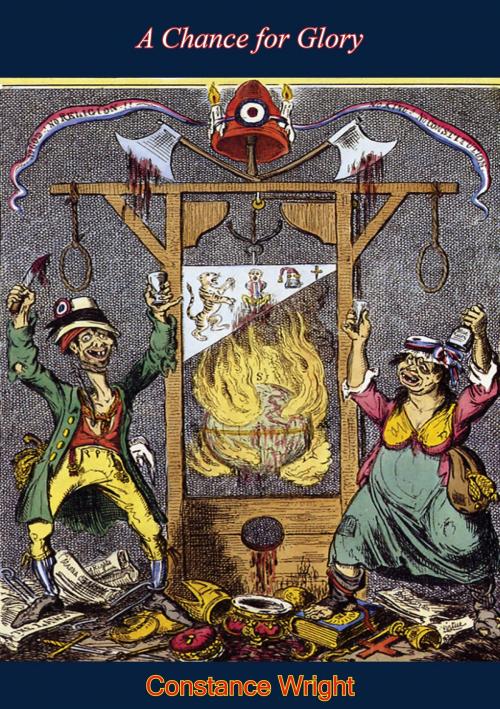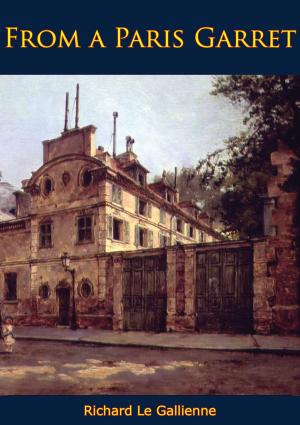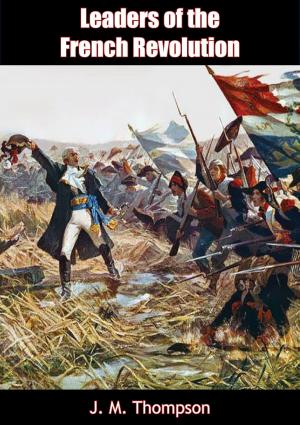| Author: | Constance Wright | ISBN: | 9781789123517 |
| Publisher: | Borodino Books | Publication: | January 13, 2019 |
| Imprint: | Borodino Books | Language: | English |
| Author: | Constance Wright |
| ISBN: | 9781789123517 |
| Publisher: | Borodino Books |
| Publication: | January 13, 2019 |
| Imprint: | Borodino Books |
| Language: | English |
First published in 1957, A Chance for Glory is a wonderful biography of Dr. Justus Erich Bollman, the German physician who played a colorful part in the life of the Marquise de Lafayette, the young wife of the French aristocrat and military officer Marquis de Lafayette.
Dr. Bollman studied medicine at Göttingen, and practised in Karlsruhe and in Paris, where he settled at the beginning of the French Revolution. He accompanied Count Narbonne, who fled to England in 1792, and in London fell in with Lally-Tollendal, who induced him to go to Austria and endeavor to find out where the Marquis de Lafayette was being confined. He established himself as a physician in Vienna. Learning that Lafayette was a prisoner at Olmütz, he formed a plan to rescue him with the assistance of Francis Kinloch Huger (1773-1855), a young man from South Carolina who was in Vienna while traveling through Europe. Communicating with the prisoner through the prison surgeon, the two fell upon his guards while he was taking exercise in a carriage, and succeeded in getting him away on a horse; but he rode in the wrong direction and was recaptured. Bollman escaped to Prussia, but was handed over to the Austrian authorities, who kept him in prison for nearly a year, and then released him on condition that he should leave the country.
“Dr. Justus Erich Bollman felt that he had been brought into the world for more than the practice of medicine in Hanover. Though Bollman was a more diligent charmer than a doctor and managed to get what he wanted through the right contacts, his major goal was in line with the cause of freedom. This was the rescue of Lafayette, imprisoned when his form of revolution proved too limited for the Paris powers of the Terror. Bollman’s attempts to effect escape were remarkable and as the scene shifts all across Europe and to America, there is the pace and drama of a good novel.”—Kirkus Review
First published in 1957, A Chance for Glory is a wonderful biography of Dr. Justus Erich Bollman, the German physician who played a colorful part in the life of the Marquise de Lafayette, the young wife of the French aristocrat and military officer Marquis de Lafayette.
Dr. Bollman studied medicine at Göttingen, and practised in Karlsruhe and in Paris, where he settled at the beginning of the French Revolution. He accompanied Count Narbonne, who fled to England in 1792, and in London fell in with Lally-Tollendal, who induced him to go to Austria and endeavor to find out where the Marquis de Lafayette was being confined. He established himself as a physician in Vienna. Learning that Lafayette was a prisoner at Olmütz, he formed a plan to rescue him with the assistance of Francis Kinloch Huger (1773-1855), a young man from South Carolina who was in Vienna while traveling through Europe. Communicating with the prisoner through the prison surgeon, the two fell upon his guards while he was taking exercise in a carriage, and succeeded in getting him away on a horse; but he rode in the wrong direction and was recaptured. Bollman escaped to Prussia, but was handed over to the Austrian authorities, who kept him in prison for nearly a year, and then released him on condition that he should leave the country.
“Dr. Justus Erich Bollman felt that he had been brought into the world for more than the practice of medicine in Hanover. Though Bollman was a more diligent charmer than a doctor and managed to get what he wanted through the right contacts, his major goal was in line with the cause of freedom. This was the rescue of Lafayette, imprisoned when his form of revolution proved too limited for the Paris powers of the Terror. Bollman’s attempts to effect escape were remarkable and as the scene shifts all across Europe and to America, there is the pace and drama of a good novel.”—Kirkus Review















